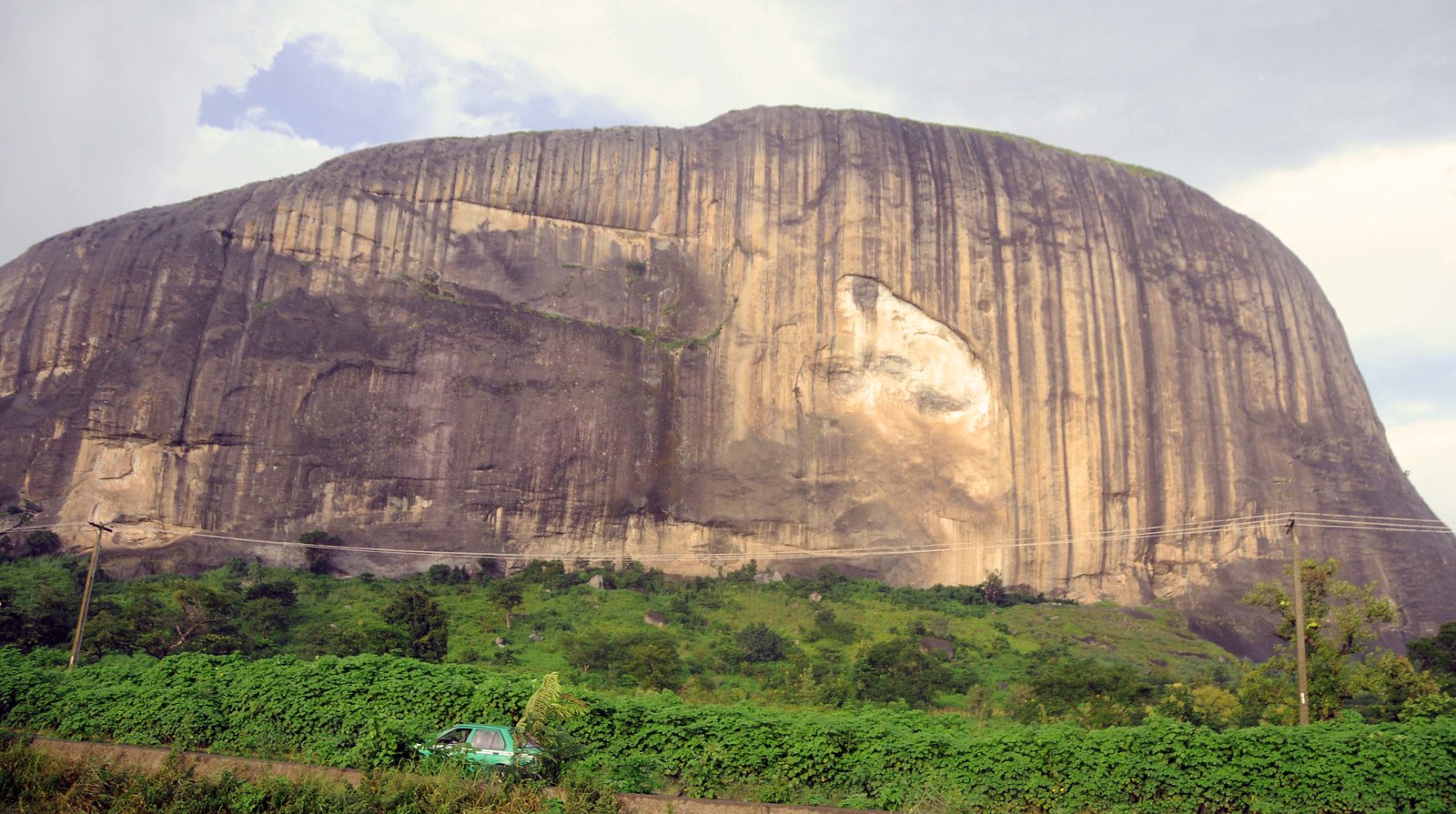Aso Rock, fondly referred to by many as the “seat of the Nigerian government” is one of Nigeria’s most conspicuous features. Found in the heart of Nigeria’s capital, Abuja, and rising 400 meters above the surrounding terrain, the role Aso Rock plays in Nigeria’s political heart cannot be overemphasized. It is a huge symbol of the nation's unity, power, and identity.
Aso Rock is a monolithic rock formation composed primarily of granite. The Rock’s primary history is that of a massive intrusion of molten rock that solidified deep within the Earth’s crust during the Precambrian period, and subsequently, the erosion of softer surrounding rocks.
It is said that the name “Aso” originated from the word "Oso," which means victorious in the language of the Aso people, an ethnic group believed to have been the original inhabitants of the area. According to local folklore, the name Aso is associated with the mythical story of a group of warriors who fought from the top of the rock, successfully defending their territory against invaders.
Aso Rock’s presence in Abuja’s skyline is quite astonishing. Its presence in the capital city lends a sense of grandeur and power to the city, as it forms an overwhelming backdrop to key government structures. The Nigerian Presidential Complex, National Assembly, and the Nigerian Supreme Court, which are located in proximity to Aso Rock, further enhance the rock's significance. Many visitors to the city are struck by how Aso Rock seems to rise from the ground, set in opposition to the modern architecture of the capital.
The rock serves as a geographic touchstone within the city and is frequently featured in media, local artwork, and photography. As one of the main attractions in Abuja, it draws tourists from around the world, who often come to appreciate its natural beauty, take in its surroundings, and learn about its rich history and symbolism. The rock also contributes to the sense of identity in Abuja and Nigeria as a whole.
While Aso Rock is primarily known as a natural symbol, it has also become associated with the country’s political sphere. The name “Aso Rock” is directly connected to Nigeria’s seat of power. The Presidential Complex, which houses the offices of the Nigerian president and other important government offices, is situated near the base of the rock. This proximity to Aso Rock further enhances the symbolism of power and authority associated with the formation.
The Nigerian government’s decision to establish Abuja as the capital city was not just about geography—it was also about creating a political centre that represented the country’s diverse ethnic groups and regions. Aso Rock’s placement near the Presidential Complex reinforces the idea of Abuja as the central, neutral hub of Nigeria’s political system. The rock has been present during significant events in Nigerian history, including presidential inaugurations, diplomatic meetings, and national celebrations.
Additionally, Aso Rock serves as an enduring symbol of national unity. Nigeria, as a country with over 250 ethnic groups, has faced challenges related to ethnic and regional divisions. However, Aso Rock transcends these divides, standing as a unifying feature that connects the country through its central location and representation of power. Its symbolism as a constant, immutable force in the nation’s history reminds Nigerians of the enduring nature of the country and its potential for growth and development.
Aso Rock is a prime tourist destination in Abuja, attracting visitors both from within Nigeria and from around the world. Tourists often enjoy climbing to the top of the rock to enjoy panoramic views of the city and the surrounding areas. Along the way, hikers are treated to the sight of lush vegetation, diverse wildlife, and impressive rock formations.
Aso Rock is not merely a natural feature; it is a beautiful beacon that serves as a focal point for the nation’s capital, Abuja and embodies the country’s political and cultural identity. Aso Rock stands as a powerful symbol of the nation’s past, present, and future. Some may view the Rock as a geological wonder; others, as a political landmark. Regardless, Aso Rock remains an emblematic feature of Abuja and a dominant symbol of Nigeria’s fortitude.
Credits:
Mark Fischer
Uzoma Ozurumba
Jeff Attawa

